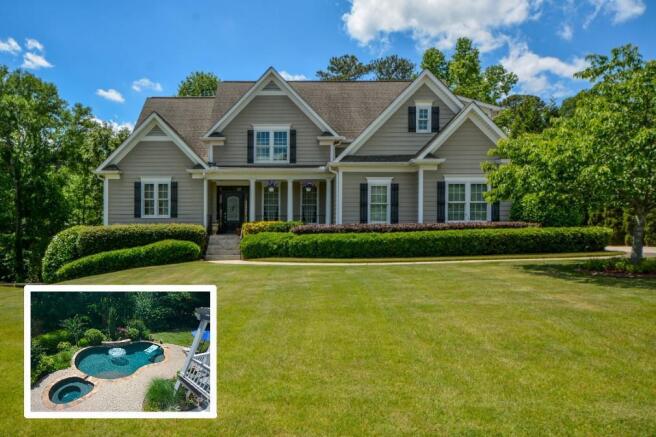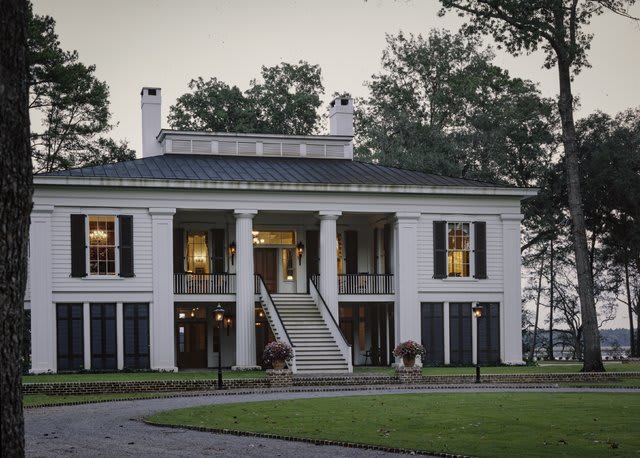flats in georgia — Guide to Buying, Renting and Investing
Exploring the market for flats in Georgia has become increasingly attractive for international buyers and renters alike. For a convenient starting point and current listings, visit flats in georgia https://residence-estate.ge/en/objects-type/flats/ to see properties across major cities and regions. This article outlines what to expect when searching for an apartment in Georgia, covering market trends, popular […]

Exploring the market for flats in Georgia has become increasingly attractive for international buyers and renters alike. For a convenient starting point and current listings, visit flats in georgia https://residence-estate.ge/en/objects-type/flats/ to see properties across major cities and regions. This article outlines what to expect when searching for an apartment in Georgia, covering market trends, popular locations, legal and financial considerations, and practical advice for living and investing.
Market overview: In recent years Georgia’s property market has shown steady growth and relative affordability compared with many European and regional capitals. Tbilisi, the capital, remains the primary hub for foreign buyers, while coastal Batumi and growing regional centers offer different advantages. The relatively low cost of living, a liberal tax regime, and a straightforward process for foreign real estate ownership have combined to make flats in Georgia appealing for both personal use and investment portfolios. Prices vary significantly by neighborhood, building quality, and proximity to amenities or transport links.
Popular areas and what they offer: Tbilisi’s central districts — such as Vera, Vake, Mtatsminda, and Saburtalo — are popular among expats and professionals. Vake and Vera provide tree-lined streets, cafés, and proximity to international schools and parks, while Mtatsminda offers panoramic views and tourist-friendly infrastructure. Saburtalo is more residential and family-oriented, with practical amenities and new developments. Batumi, on the Black Sea coast, attracts buyers interested in seaside living, short-term rentals, and resort-style apartments. Kutaisi, Narikala-adjacent suburbs, and smaller towns present lower entry prices and growing local demand.
Types of flats: The market includes Soviet-era apartments, mid-century buildings, modern developments, and luxury high-rises. Soviet-era flats typically have higher ceilings and solid construction but may need renovation. New builds offer modern layouts, amenities like parking, security, and energy efficiency, though prices are higher. When choosing a flat, consider building quality, insulation, heating systems (central or individual), soundproofing, and accessibility of services. Understanding the difference between ownership models — such as freehold versus cooperative arrangements — is important before committing.
Legal and ownership considerations: One of Georgia’s advantages is its transparent and efficient property registration system. Foreigners can own real estate without many restrictions, and the process of transferring title is generally straightforward. Still, due diligence is essential: check the property registry for liens or encumbrances, confirm the exact boundaries and floor plan, and verify that the seller has clear title. Work with a licensed notary and consider hiring a local lawyer who understands Georgian property law and can review contracts in both Georgian and English. Expect a notary fee and possible agent commissions, and ensure all necessary documents are translated if required.
Financing and costs: Cash transactions are common, but Georgian banks offer mortgage products to residents and some non-residents. Interest rates and loan terms vary; prepare a sizable down payment (often 20–30%) and be ready to produce documentation of income and assets. Beyond the purchase price, budget for taxes, notary and registration fees, realtor commissions, and potential renovation costs. Annual property tax is modest, but if you plan to rent out the flat, be aware of income tax rules and possible VAT implications for commercial rentals.

Renting vs buying: Short-term renters are attracted to tourist-friendly areas and modern apartments with amenities; long-term tenants — students, professionals, and families — tend to prefer established residential neighborhoods with schools, green spaces, and convenient transport. For investors, rental yields in Tbilisi can be competitive, especially for furnished apartments in central districts or well-marketed vacation rentals in Batumi. Consider occupancy seasonality in coastal locations. Buying may be preferable for those intending to live in Georgia for several years, while renting offers flexibility for newcomers or temporary residents.
Renovation and furnishing: Many buyers renovate older flats to meet modern standards. Renovation costs depend on scope: cosmetic updates (painting, flooring, kitchen) are the most affordable; structural changes and heating upgrades are pricier. Labor and materials are generally less expensive than in Western Europe, but reliable contractors and clear contracts are essential. Furnished flats command higher rent and appeal to expatriates and short-term visitors, so weigh initial furnishing costs against rental income potential.
Utilities, management and practical living: Check which utilities are included if buying in a multi-unit building: centralized heating is common in older stock but may be inefficient; modern buildings usually provide individual meters for water, electricity, and gas. Apartment buildings often have homeowners’ associations or building management that handle common area maintenance. Consider proximity to supermarkets, healthcare, schools, and public transport when selecting a flat. Internet and mobile coverage are generally good in cities, with several reliable providers.
Investment outlook: Georgia’s open economy, visa-free travel for many nationalities, and growing tourism contribute to real estate demand. Urban redevelopment projects and rising interest among digital nomads and remote workers further support rental markets. However, like any market, risks exist: economic shifts, changes in tourism patterns, or oversupply in certain segments can affect values. Diversify expectations: target neighborhoods with long-term demand drivers such as universities, business districts, or transport hubs to mitigate risk.
Practical tips for buyers and renters: Partner with reputable real estate agents and check multiple listings to understand price ranges. Visit properties at different times of day to assess noise and neighborhood dynamics. Verify legal paperwork and request energy performance information if available. Negotiate terms clearly in writing — rental deposits, maintenance responsibilities, and payment schedules. For expat buyers, learn about residency and tax implications before committing, and consider local banking options for easier transactions.
Conclusion: Flats in Georgia offer a compelling mix of affordability, lifestyle diversity, and investment opportunity. Whether you seek a city apartment in Tbilisi, a seaside flat in Batumi, or a long-term rental for relocation, doing thorough research and working with trusted local professionals will smooth the process. The market’s accessibility to foreigners, combined with a rich cultural setting and improving infrastructure, makes Georgia a noteworthy destination for both living and property investment.

